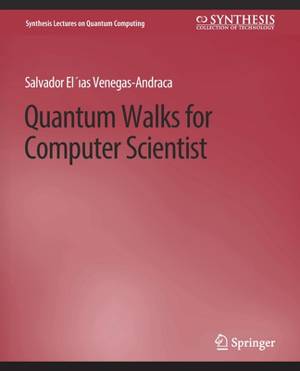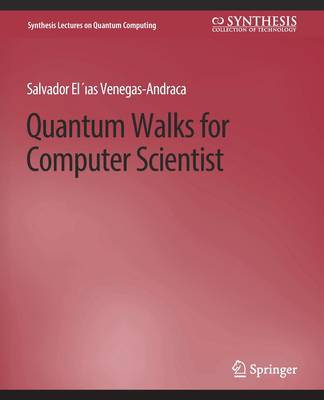
- Afhalen na 1 uur in een winkel met voorraad
- Gratis thuislevering in België vanaf € 30
- Ruim aanbod met 7 miljoen producten
- Afhalen na 1 uur in een winkel met voorraad
- Gratis thuislevering in België vanaf € 30
- Ruim aanbod met 7 miljoen producten
Zoeken
Omschrijving
Quantum computation, one of the latest joint ventures between physics and the theory of computation, is a scientific field whose main goals include the development of hardware and algorithms based on the quantum mechanical properties of those physical systems used to implement such algorithms. Solving difficult tasks (for example, the Satisfiability Problem and other NP-complete problems) requires the development of sophisticated algorithms, many ofwhich employ stochastic processes as their mathematical basis. Discrete random walks are a popular choice among those stochastic processes. Inspired on the success of discrete random walks in algorithm development, quantum walks, an emerging field of quantum computation, is a generalization of random walks into the quantum mechanical world. The purpose of this lecture is to provide a concise yet comprehensive introduction to quantum walks. Table of Contents: Introduction / Quantum Mechanics / Theory of Computation / Classical Random Walks / Quantum Walks / Computer Science and Quantum Walks / Conclusions
Specificaties
Betrokkenen
- Auteur(s):
- Uitgeverij:
Inhoud
- Aantal bladzijden:
- 119
- Taal:
- Engels
- Reeks:
Eigenschappen
- Productcode (EAN):
- 9783031013836
- Verschijningsdatum:
- 15/09/2008
- Uitvoering:
- Paperback
- Formaat:
- Trade paperback (VS)
- Afmetingen:
- 190 mm x 235 mm
- Gewicht:
- 244 g

Alleen bij Standaard Boekhandel
+ 70 punten op je klantenkaart van Standaard Boekhandel
Beoordelingen
We publiceren alleen reviews die voldoen aan de voorwaarden voor reviews. Bekijk onze voorwaarden voor reviews.







